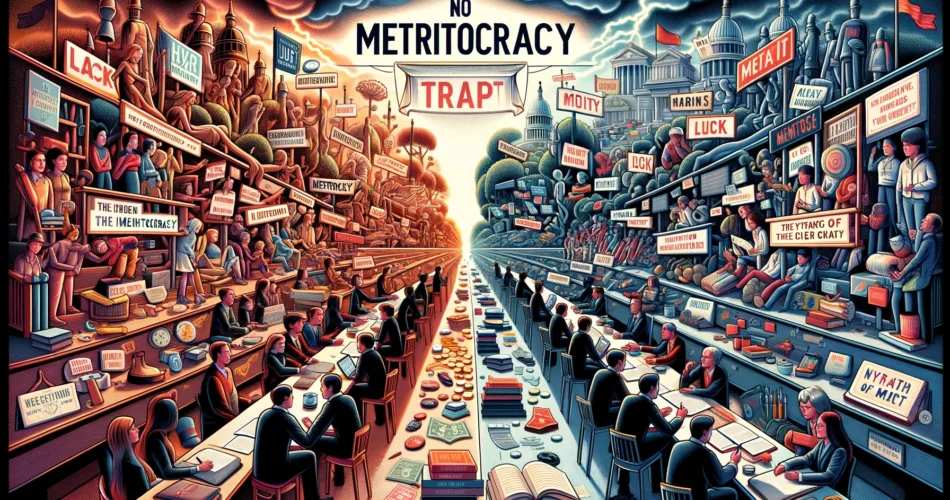The Illusion of a Perfect Meritocracy: An In-Depth Analysis
In today’s discourse on fairness and opportunity, the concept of meritocracy takes center stage, sparking a myriad of perspectives on its implications for society. Angela Duckworth and Mike M, through their enlightening conversation on “No Stupid Questions,” delve into the multifaceted nature of meritocracy, inspired by Patrick Gilmartin’s probing inquiry and the insights from Daniel Markovits’ “The Meritocracy Trap” and Michael Sandel’s “The Tyranny of Merit.”
Understanding Meritocracy and Its Discontents
At the heart of the meritocracy debate lies the question of whether a system that rewards merit – typically seen as a combination of talent and effort – can ever be truly fair or desirable. The discussion begins with an exploration of meritocracy’s evolution, from a solution to nepotism and privilege to a system that, paradoxically, may perpetuate inequality. The meritocracy trap, as articulated by Markovits, describes a vicious cycle where elite education and opportunities are monopolized by the wealthy, leading to a snowballing effect of inequality. This raises profound questions about the inherent fairness of meritocratic systems and their impact on society at large.
The Hidden Harms of Meritocracy
Duckworth and M discuss how meritocracy, in its pursuit of rewarding the “deserving,” inadvertently exacerbates social stratification. This system not only marginalizes those without access to the same resources but also places immense pressure on individuals to constantly compete, contributing to increased rates of depression and suicide. The narrative then shifts to an examination of how early advantages, often a result of sheer luck or circumstance, can dramatically influence one’s trajectory in a supposedly merit-based system.
The Role of Luck and the Illusion of Merit
One of the most compelling aspects of the conversation is the acknowledgment of luck’s significant role in what is often perceived as individual achievement. By recounting personal anecdotes and hypothetical scenarios, Duckworth and M illustrate how chance encounters and arbitrary circumstances can shape one’s path, challenging the notion that merit alone dictates success. This recognition of luck’s influence calls into question the very foundation of meritocracy and invites a reevaluation of how we define and reward merit.
Reimagining Fairness in a Divided World
The dialogue culminates in a nuanced discussion on potential pathways forward, acknowledging the complexity of dismantling deeply ingrained systems of inequality. The speakers advocate for a more inclusive understanding of merit, one that recognizes the diverse ways in which people contribute to society beyond traditional measures of success. This perspective emphasizes the importance of creating opportunities for all, rather than perpetuating a cycle of privilege and exclusion.
Conclusion: Toward a More Equitable Society
The conversation on “No Stupid Questions” provides a thoughtful exploration of the merits and pitfalls of meritocracy, highlighting the need for a critical examination of how we allocate opportunities and rewards. By acknowledging the role of luck and challenging the narrow definitions of merit, we can work toward a society that values diversity, equity, and inclusion. The meritocracy debate ultimately reveals the complexities of achieving fairness in a world marked by profound inequalities, urging us to consider more compassionate and equitable alternatives.

